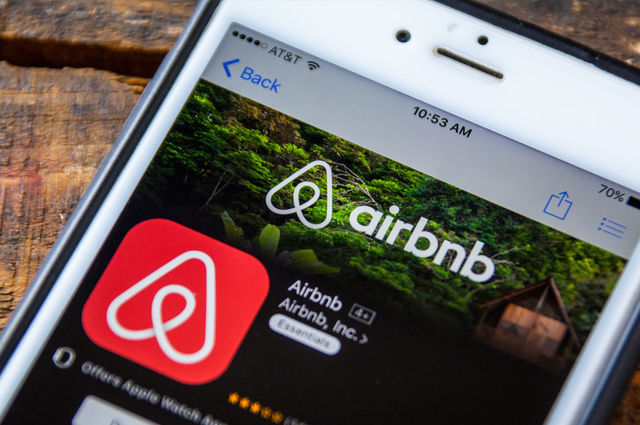Is Airbnb Hotelier’s Friend or Foe?
14 experts shared their view
After the recent acquisition of HotelTonight, If there were any doubt as to Airbnb's true intentions of entering the OTA space and start aggressively competing with online travel agency giants such as Booking Holdings and Expedia, they need to be laid to rest immediately.
The industry has conflicting views of the role Airbnb plays and will play in hotel distribution. Some hoteliers believe that Airbnb is not an ordinary OTA since it "hijacks" travel demand and diverts traditional hotel guest to private accommodations. Airbnb has already "hijacked" 10%-15% of the travel demand in many major metropolitan areas and leisure destinations such as New York City, Paris, and London. This affects negatively overall occupancy and hotel room pricing and hoteliers are unable to raise ADRs in periods of traditional peak demand. According to Morgan Stanley Research, 50% of survey respondents in the US, UK, France, and Germany reported that they booked an Airbnb in place of a traditional hotel. In other words, Airbnb is diverting traditional hotel guests to private accommodations.
Other hoteliers welcome the entry of Airbnb in the hotel distribution mix, since they believe Airbnb adds another option to the existing duopoly of Booking Holdings and Expedia.
What is your take on the subject?
Despite its powerful outward appearance, Airbnb needs the hotel industry much more than hotels need Airbnb. Access to suitable supply is the key success factor for any Platform business. This is particularly true in travel, as demand for a particular moment in time cannot easily be deferred to a later date and needs to be serviced immediately or else it is lost.
This need helps explain why OTAs such as Expedia and Booking.com go to such lengths to both sign up additional properties and develop close relationships with existing properties through their network of market managers. In effect what they are trying to do it get access to more and more supply so as to be able to propose solutions whenever a potential customer searches for a room in any city on any date.
Airbnb current has a supply crisis. In its pre-IPO state, maintaining growth is a key issue. To do so, it needs more supply in the destinations that its customers are demanding. However, not only are many of these markets already saturated in terms of the number of private accommodation providers willing to share their homes, but the company is facing increased regulation in many o fits key destinations that not just limit, but threaten to significantly reduce, the number of nights such properties can be rented. Quite simply their supply of peer-to-peer accommodation is rapidly drying up.
Thus it's not surprising that they are turning to hotels. Smart properties should leverage this possibility to embrace an additional, undoubtedly powerful, distribution channel and diversify their sources of online business. Opportunities like this don't grow on trees!
Airbnb is an intermediary focused on private accommodations first, hotel accommodations second, which is the exact opposite to the major OTAs. Via Airbnb, the hotel industry loses over $1 billion a year to private accommodations. It is a matter of simple supply and demand: by adding 10%-15% to the supply side, Airbnb takes 10%-15% from the travel demand side, which directly affects hotel ADRs, Occupancy and RevPARs.
In this sense, Airbnb is not just another OTA, not a “new and exciting alternative” to the OTA duopoly, since it diverts traditional hotel guests to private accommodations.
To combat the negative effects of Airbnb on the bottom line, hoteliers must identify and promote their unique value proposition, focusing on hotel-exclusive guest services and amenities not offered by private accommodations, such as self-checking apps and kiosks, IoT devices, smart TVs and other guest-facing technology applications, true HSIA, room service, housekeeping, communal spaces, safety and security, ADA compliance, concierge services, baggage storage, guest appreciation and loyalty programs, etc.
Make no mistake, Airbnb is not a hotelier's friend. A potential distribution partner, perhaps, but if the company's dealings to date with local governments and the hotel industry are any indication, relationships between hotels and Airbnb will be as contentious and codependent as relationships between hotels and OTAs.
In a recent Wired article, a source referred to Airbnb's tactics with local governments regarding tax, zoning and safety regulations as “a city-by-city, block-by-block guerrilla war.” That doesn't sound like the type of friend the hotel industry needs.
A competitor to OTAs would be more welcome if it were to create new demand for hotel rooms, but the opposite is true of Airbnb. A substantial proportion of the 500 million+ guests Airbnb has hosted since 2008 would otherwise have stayed in hotels.
When negotiating a distribution partnership with Airbnb, hotels should be careful not to repeat the same mistakes as when OTAs first came on the scene. This means retaining control of your brand trademarks, inventory, rates and guest relationships.
From the time they announced they were pursuing boutique hotel inventory in March 2018, Airbnb's intentions became obvious. Just as Expedia and Booking.com have to diversify into short term rental, Airbnb has to add hotels. Growth rates are critical if they want to IPO and their penetration in vacation rental cannot maintain the meteoric rise with head-on competition from the OTAs. Pushback from tax and safety regulations in major markets has been another persistent headwind.
In terms of how this plays out for hoteliers? Anything that puts more competition into the mix to challenge the duopoly of Expedia and Booking.com has to have some advantages. However, as 3rd parties are direct competitors to the more profitable Brand.com, they will usually be a second choice as a demand driver. Google's recent enhancements to their direct booking platform pose a serious challenge to the OTA's economic model while Airbnb has some advantages with its higher level of direct app usage by its core user base. Airbnb is no more friend to the hotelier than the OTAs, but the biggest concern for all is Google.
AirBnB is clearly a phenomenon that is disrupting the hospitality industry as we know it. I am not sure if this can be classified as a “friend or foe” but to me it is clear that the dramatic rise of this type of lodging should pose some real questions to hoteliers. Flat renting has been there forever and several players were there also before AirBnB. So: why AirBnB is having more traction into the market and what are the things hoteliers could learn by the rapid growth of it?
Aside from the economic issues (does a guest really saves when booking AirBnB?), I believe there are two points that can be of interest in this discussion. First AirBnB is tapping into the rise of a new 'crowdculture': From the columns of Harward Business Review Holt defined crowdcultures as sub culture born and breaded in the internet long tail: we are not anymore tourist, but we are travellers and as travellers we would like to see more or experience more: in other words we would like to 'live' the place where we go. This is a clear standpoint in AirBnB communication and marketing. Guests are not anymore looking for a bed, but they are looking for personalized experiences. Secondly, there is in my opinion a big dose of homophily (i.e. the tendency for people to have ties with people who are similar to themselves in socially significant ways) when choosing AirBnB accommodation. In other words guests will try to choose accommodation that in some ways reflect their view of themselves. Research from Iis Tussyadiah (University of Surrey), confirms that AirBnB announces and host presentations are written in a way that resonates to the personality of the guests. There is a component of 'this accommodation really suits who I am' that is now relevant in the choice of the place where to stay.
Therefore, aside from economic discussions I truly believe that hoteliers should learn from AirBnB to deal with these 'new guests' tapping into customization of the stay and personality of the hotel. One size fits all does not exist anymore and the AirBnB model is just the top of the cultural iceberg that is impacting the hotel industry as we know it.
Looking at competition from the standpoint of how it is hurting profits is never a great way to look at it. That rates can't be raised is a good thing for guests. The question of the acquisition and Airbnb's intention is: what can it bring to the customer. More choice is a good thing. Hotels also need to understand what is appealing to guests in apartments and try to emulate that. If it is just price then we know where this is going. Airbnb blending the categories might be good. It will commodities beds. But Booking is already doing that and hotels still sell. For OTAs and distributors, hotels are always better. Because with the same ad budget they can sell dozens of rooms. Whereas an apartment can only be sold once. The accommodations category is evolving beyond hotels.
Adam Smith (1723-1790) is known as the Father of Economics. In his book entitled The Wealth of Nations (1776) he defined the Law of Supply and Demand. In short form: Prices fall when demand exceeds supply. Now let's take Airbnb adding some (at time of writing) six million rooms into global inventory. Ask yourself, has tourism and business demand for rooms increased by this much in the past decade, noting full well that traditional room stock has also increased? The answer clearly is no. Demand has not increased sufficiently to absorb this new inventory. Therefore, following this economic theory, prices have fallen. I must therefore conclude that any factor that reduces our industry's prices is a foe.
Airbnb adds a tremendous amount of room inventory to the market, mainly in the top tourist destinations. Regardless the fact that hosts on Airbnb gain some advantages over hoteliers as there are fewer compliances a host must follow, there occurs a loss of revenue for the hotel industry every time when a traveler stays in an Airbnb or any room-sharing facility instead of a hotel room. In a nutshell, hosts on Airbnb not only gain advantages over hoteliers in operations, but they also take away real business from hotels.
Yes, Airbnb and hotels are competing against each other in the same market. The question is: Can hotels gain something from the competition with Airbnb?
There is a possibility that Airbnb can help hotels increase revenue, depending on the relative pricing strategies the Airbnb listings have as compared to the hotels. More importantly, hotels are learning from Airbnb for product improvement and development. Inspired by the unique features of Airbnb, many hotel chains have introduced new brands to combat Airbnb. Moreover, some hotels chains were able to identify new business opportunities as they noticed there was no way hotels can stop the growth of Airbnb, not now and probably not in the future either. So, hotels themselves also enter the short-term residential rental market.
While both hotels and Airbnb want to win more market share, they are developing new products and inventing new services to stay competitive. Such competition can add more excitement to the market, especially if we can find ways to ensure a fair “game.” Travelers are probably liking such competition too. Having more options in the market to choose from is not a bad thing. Would you agree?
Probably both. In many cases the local experience that Airbnb users seek simply can't be replicated by hotels. This is evidenced by many hotels trying to replicate that experience, even going to the extent of removing the word hotel from their name. Whilst hotels report a softening of demand in areas of high Airbnb penetration, assessments of share of demand indicate that Airbnb is tapping into an alternative type of customer. If anything, AirBnb has forced hotels to up their game and re-think what it means to be a hotel typically scoring high on areas such as location, guest services and amenities. A hotel can always go the extra mile to make the guest feel more comfortable and increasingly more secure – it's not always easy to call a taxi from the home of a stranger in a country that doesn't speak the same language as you. However, as the company diversifies into alternative accommodation verticals their influence on the sector will grow.
Airbnb broke the 'boundary' between the accommodation and the hotel industries by focusing travellers on what they need is a place to sleep, not a hotel room. Airbnb, as a relatively new supplier of beds, works harder to better understand travellers and, as a consequence, travellers are willing to tolerate the inconvenience of waiting to be approved, and dragging their luggage to find their Airbnb. How many hotel brands have this power?
Labelling Airbnb as a 'foe' may imply a war to be won over. Yet, does the hotel industry have any advantages to win? Airbnb just reached their 500 millionth customer. Airbnb is becoming more accessible through more inventories across the world, working with channel managers such as siteminder, and last minute booking facilitated by HotelTonight. How can the hotel industry convince travellers using Airbnb to check in again? How could the hotel industry stay relevant and not to be marginalized by Airbnb?
Maybe instead of treating Airbnb as a foe, the hotel industry should learn from Airbnb. The hotel industry needs to better understand why people travel. People travel to connect with love ones, to discover the world, to conduct business and maintain networks, and to discover their 'true' self. Could the hotel be the stage and facilitator? Can they provide the 'hosts' their customers really need?
The hotel industry needs to strengthen its role in perceptions of both community and traveller stakeholders by conducting the research needed to demonstrate their economic contributions. The hotel industry provides a wide range of job opportunities, creates many tourism related local multiplier effects through purchasing various products and services, and paying of various taxes. Staying in a hotel is not only about a place to sleep but a chance to contribute to the local economy while supporting the destination's ability to compete.
My view is that it's not a simple topic and there are several aspects to consider. 1 - On moving in to hotel space, this is a natural progression when tracking all of the existing OTA's. Over time all of the third party players will broaden their capabilities into other markets, although all will be secondary to search engine powered travel platforms such as Google. From a customer perspective it makes sense to offer the AirBNB customer a hotel option when they need it rather than having them use an alternate path to a booking.
2 - The main objective is customer ownership. This will matter in the wars to come!
From the operator perspective more competition in the OTA space is not necessarily a bad thing and may allow operators to balance some of the stranglehold on booking costs as they look further across a broader third party platform that wants to compete.
3 - On displacement of demand, I'm sure there is a level of this, although when examining the current hotel build pipeline there has never been more hotels being built globally at any time. Based upon that sentiment and the feasibility study process that goes into planning for hotel developments clearly there is a view that the market looks positive globally despite broader competition. These hotels will also have to be filled once they come to market and some may fit the AirBNB channel model nicely.
4 - AirBNB vs Hotel offer two different types of experience. One is more challenging to the traveler or better suited to multiple travelers wanting to be together. The other is based upon a standard expectation of product and service and ease of utilization of the environment. In the case of AirBNB the guest cannot be fully certain of what to expect as a product and there will be a level of getting to know the environment within and without the accommodation. The hotel experience is a known entity based on industry standards regardless or brand or operator. The choice is circumstantial in my opinion. I will look at AirBNB for leisure or when I have the time to navigate the environment. Many guests struggle with hotel room lighting and TV controls. Do they really want to learn an area or suburb for the things they need when travelling?
5 - Regulation will play a greater role in the AirBNB offering. It is clear that the idea of temporarily renting a residents property while out of town has skewed way past everyone's original thoughts. Naturally the socio-economic impact will continue to be scrutinized by governments based upon the impact of residential housing in municipalities. Visitors don't vote. The hotel sector will not be faced with these challenges.
6 - The the hotel sector is their own worst enemy as it pursues the ongoing commoditization of the experience. Less hospitality and more lodging. My view is that as the industry continues to pursue this approach they play directly into the hands of AirBNB where it's all product and no service. Hospitality needs to be more focused than ever on the service aspects as the differentiation from the AirBNB model. This is where the unmatched value can be applied.
7 - Commercially unless it is home sharing my experience has been that the price variance between AirBNB and traditional hotels is not distinct, particularly in popular markets. By the time AirBNB adds all of the additional charges and removes the facility and service aspects of a 'stay' there isn't much price difference at all.
Airbnb's mission is to live in the world where one day you can feel like you're home anywhere & not in a home, but truly home, where you belong. Their mission is to make a home anywhere in the world for people who live outside their home and still feel like they are at home.
Airbnb's mission statement above creates a sense of belonging and so from a hoteliers perspective, if they can create this type of emotional response from those who use Airbnb, they should definitively be seen as a foe. Irrespective of the distribution angle that has many hoteliers feeling wary and extremely vulnerable, it is the essence of how Airbnb is trying to differentiate itself from the hotel industry that should create the greatest amount of fear for your average GM.
Travelers will gravitate to where they feel most comfortable when it comes to the lodging experience and even though Airbnb has been disruptive both on the experiential and distribution front, it is imperative that there is an enemy that forces you to "up your game". Hopefully Airbnb is that true foe that forces the hotel industry to deliver better service, product offerings and choice.
It really doesn't matter if AirBnB is a friend of foe, it is here, it is successful and it resonates with consumers who are looking for a different type of accommodation. The private accommodation industry has been around for ages, what AirBNB and others have done is to make it accessible for more people than ever before. This segment of the industry clearly serves an unmet need of consumers: People who are looking for more space, stay longer, pay less and don't care about the uncertainties of staying in apartments or rooms.
The growth of that segment (so far) has clearly energized the hotel industry, stimulating innovation and the emergence of new types of Hotels which seek to combine the best of the AirBnB world (more space in more authentic locations at a lower price) with the Hotel world (safety, standards, service). This is good for the industry.
Whenever a new entrant disrupts the market, the deck of established players gets reshuffled. It is fear or fight. M&A activity increases, innovation accelerates and in the end the market balances itself to find a happy equilibrium, until the disruptor gets disrupted. Incumbents can either fear the new entrant and complain about disruption, or fight by making their own business more resilient, in turn adapting to the new reality and often becoming even stronger as a result.
Airbnb over time has lost its host centric edge as it moves into a profit centric mode. Trying to argue that Airbnb is nothing else than another OTA in the landscape should by now be a mute point - acquisition of Hoteltonight, hiking up commission rates "to either pass on to guests or suck it up like you would with OTA's", possible investment in OYO, etc.
Just like other OTA's - the fight is now between OTA's and Airbnb has taken them on as being one of them. This also means that just as in the other battlefield (e.g. Expedia vs. b.com) hotels and hosts have become collateral damage, disposable goods, products on the shelf - either you get with it or you are out.
Overall hoteliers should see for what it is: another OTA in the game that will find ways to benefit from the hotels to drive their own agenda forward that at times has positive, at times negative effects on the hotels.














